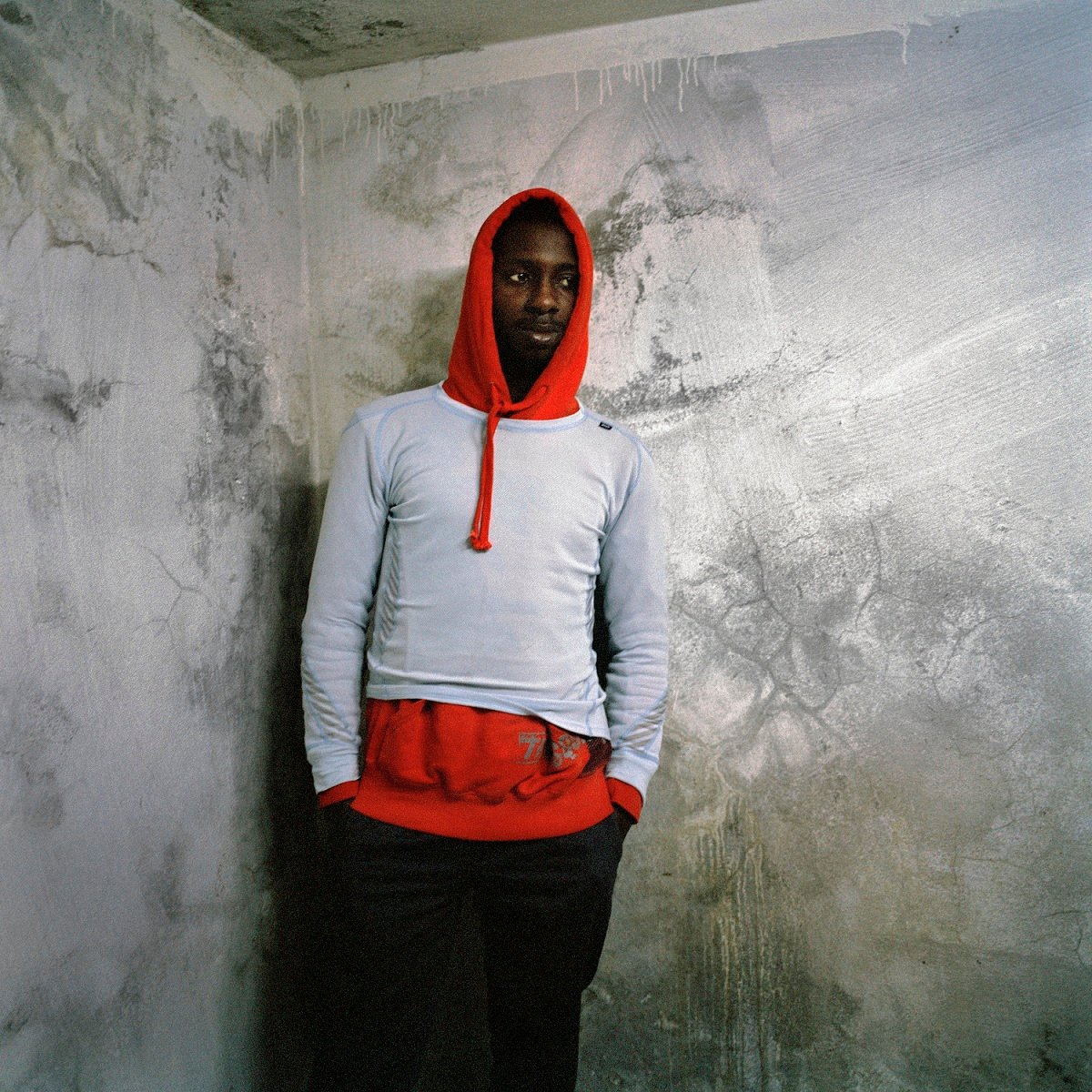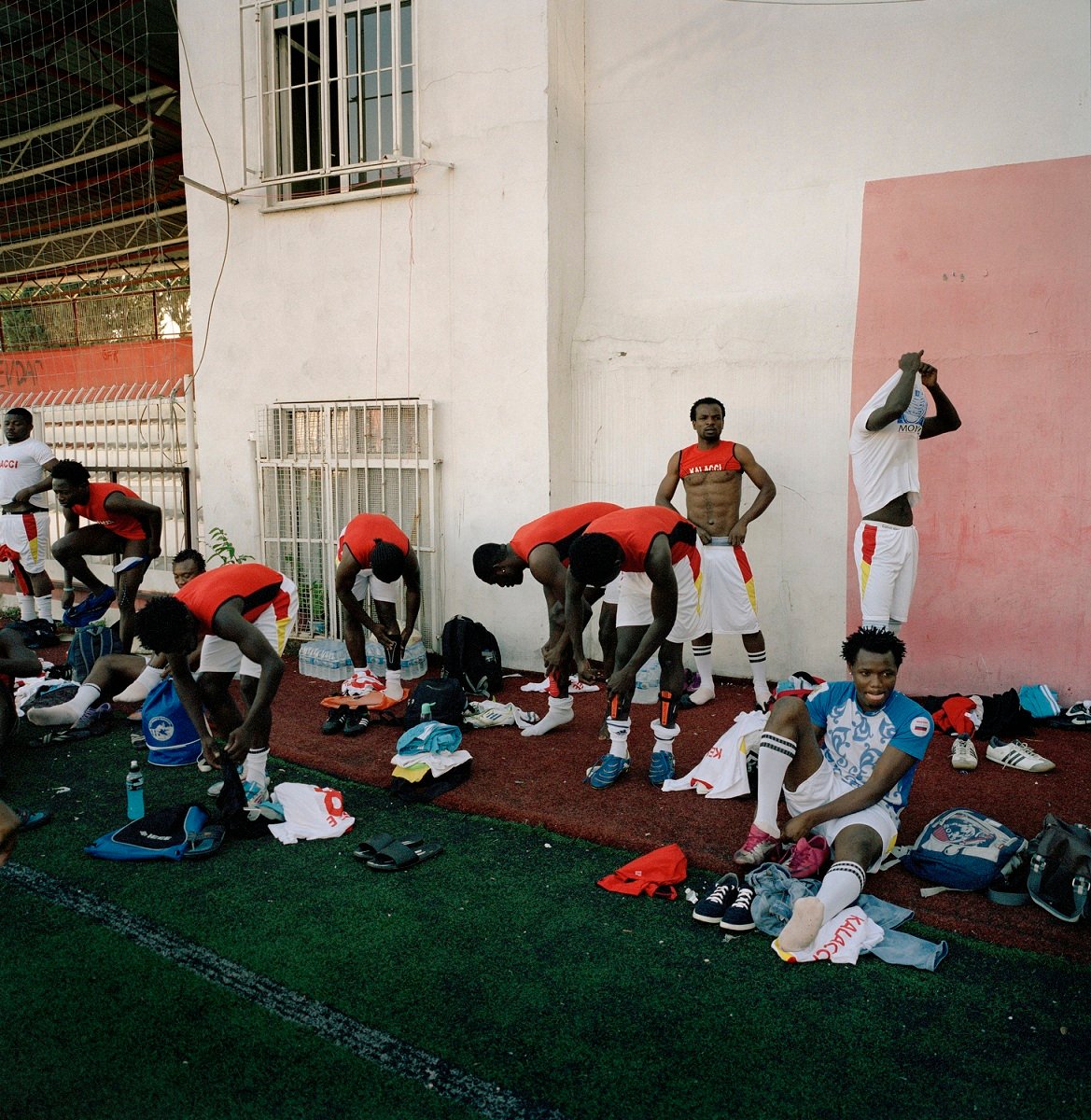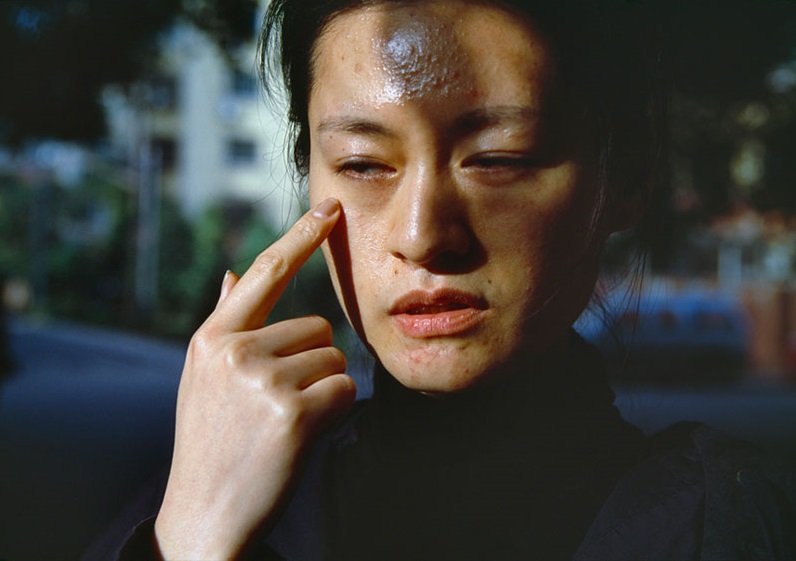Turkey –
One evening in the basement of an Internet café in the Sisli neighbourhood of Istanbul, a small group of Africans stare fixated at a television screen, out of sight of residents and the local police. The Chelsea vs. Tottenham football match is on and the young men have each paid 50 Kurus (28 cents) to watch the game. At one time, these young men huddled together in this damp and dark basement dreamed they would be playing professional football in Turkey, a stepping-stone into the European leagues. Following rogue agents, many players left high profile teams in their home countries, only to find themselves battling poverty, police brutality and racism in Turkey; something none of them expected when they arrived with promises of football stardom.
“In my country, no one would ever treat me like this,” says Akeem, a football player from Lagos, Nigeria as he’s heckled by a group of Turkish boys. “Here, in Turkey,” says Akeem, “I’m just another Nigger.”

A television screen shows a Chelsea vs. Tottenham football match in the basement of an internet cafe in Istanbul, Turkey. Each player paid a small fee to watch the game, out of sight of local police who had fined the cafe for showing the games after hours to Africans. The internet cafe was later shut down, eliminating a spot for the community to watch Football games and hang out late in the evening, out of site of the community and local police.
Over the past few decades, Turkey has become an economic and political power within the region, carrying strong international influence over the Mediterranean Basin, Black Sea and the Middle East. Turkey’s also increased its influence in Africa, where exports to African nations have increased from US$1.2 – 16 billion between 1996 – 2008, a little over 10 per cent of their total exports. Their recent re-discovery of Africa not only influences trade and foreign policy in the region, but migration and asylum into and through Turkey as well. Migrants have also become more aware of Turkey’s economical, political and geographical influence in the region. This knowledge became an overweighing factor for migrants using Turkey’s border with Greece when in 2010 alone, an estimated 90 per cent of migrants heading into Europe crossed through Turkey.
In Sub Saharan African countries, fake football agents posing as FIFA (Fédération Internationale de Football Association) scouts have capitalised on the political and economic success of Turkey; creating recruitment camps for footballers looking to play professionally in Europe. Attracting seasoned professionals and aspiring young players, these camps promote Turkish football leagues because their sports visas are much simpler for Africans to purchase than European ones. Using Turkey as a gateway into Europe, the players, many with families still in Africa, have paid upwards of US$5000 to scouts who promise a contract with a Turkish football club. This fee doesn’t include the bribe money that players have to pay to local officials in their home country. Too old to be considered for professional football anymore, many players must change their birth certificates to a younger age so they are more attractive to the Turkish football teams.

A Nigerian immigrant poses for a portrait inside the basement of an internet cafe that is frequented by many African immigrants because of their cheap internet and phone prices. The internet cafe was later shut down, eliminating a spot for the community to watch Football games and hang out late in the evening, out of site of the community and local police.
Since the spring of 2010, I have been documenting the plight of these young African players in Turkey as they struggle to assimilate into Turkish society, battling poverty and racial stereotypes while relying on small-scale scams to earn money. I’ve spent time with them, watching as they train to stay in football shape, walking miles to the field because they don’t have money for the bus fare, only to be turned away most days because they can’t afford to play. Abandoned by the scouts that brought them to Istanbul, the young men don’t have the proper papers to work or play in Turkey nor the money to move forward to Europe, let alone live a life outside of poverty. Their only chance to play for professional teams now relies on the yearly Africa Community Cup, played on a rundown field in Istanbul. The cup gives the players an opportunity to showcase their skills to Turkish scouts while played in front of a packed crowd of African fans and curious Turkish onlookers. This tournament is also responsible for the large influx of new African players to Turkey every year, creating tensions within the community as opportunities become slimmer with more players vying for a spot on one of Turkey’s small amateur teams.
With a desperate growing community of Africans in Turkey, I plan to continue to document and tell their story, following their progression as they strive to move towards Europe while others return home. These players, once heralded in their home countries, as the potential next great stars are now only a statistic, mashed together with the other Africans vying for their chance at their own European dream.
Written and Photography by – Jason Andrew













